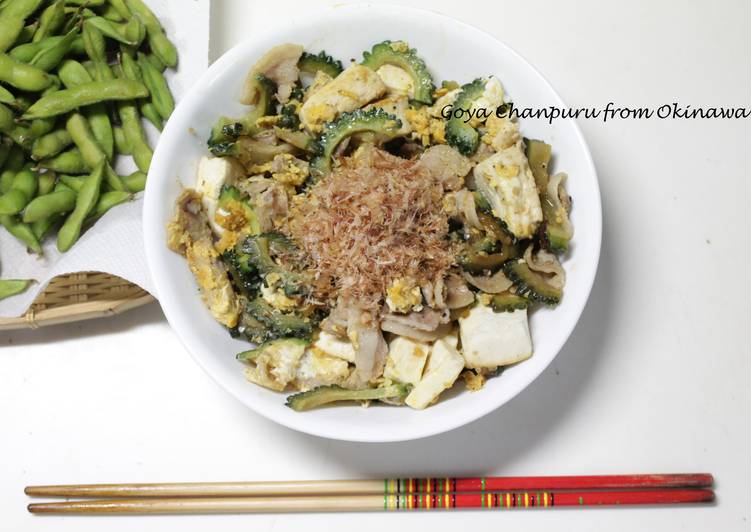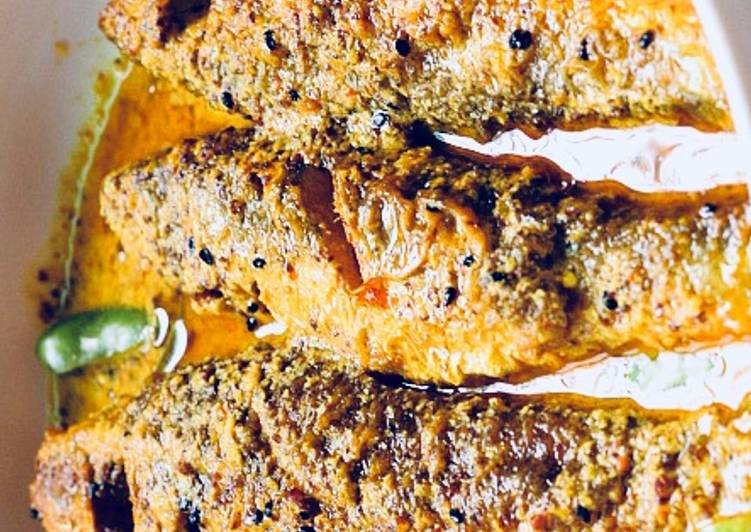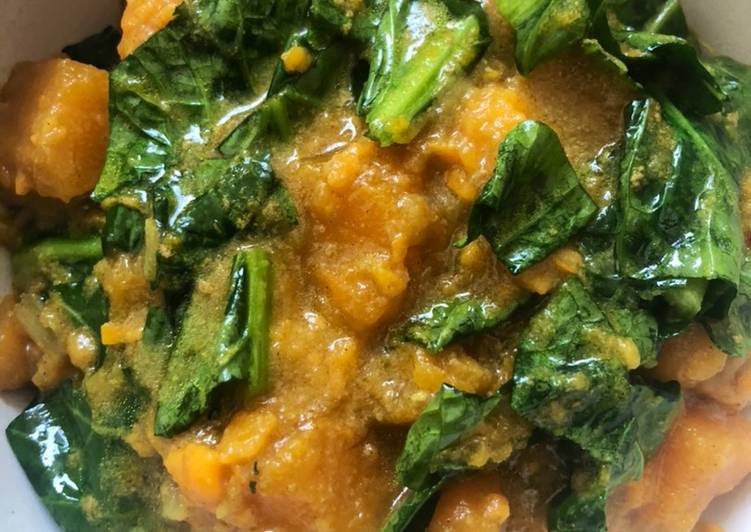
Hello everybody, it is Jim, welcome to my recipe site. Today, I will show you a way to make a special dish, goya chanpuru, okinawan cuisine. One of my favorites food recipes. For mine, I will make it a little bit tasty. This will be really delicious.
Goya Chanpuru, Okinawan Cuisine is one of the most well liked of current trending meals in the world. It is easy, it is quick, it tastes delicious. It’s appreciated by millions daily. Goya Chanpuru, Okinawan Cuisine is something that I’ve loved my whole life. They’re nice and they look wonderful.
Goya (ゴーヤ) is an Okinawan dialect for Nigauri (にがうり). It's bitter melon or bitter gourd in English. As you can probably guess, bitter melon is Chanpurū (チャンプルー) refers to Okinawan stir fry dishes, meaning "something mixed" in Okinawan.
To get started with this particular recipe, we must first prepare a few ingredients. You can cook goya chanpuru, okinawan cuisine using 11 ingredients and 16 steps. Here is how you cook that.
The ingredients needed to make Goya Chanpuru, Okinawan Cuisine:
- Prepare 15 g sake (cooking alcohol or Japanese sake)
- Prepare 25 g soy sauce
- Get 1 Tablespoon Bonito stock (dashi)
- Make ready 1 pinch salt
- Prepare 15 g mirin
- Get 15 g sesame oil
- Take 1 Goya
- Get 150 g bacon
- Get 2 eggs
- Prepare 1 extra firm tofu
- Make ready Katuobushi, as needed
It is not greasy at all and my version is made with pork slices instead of SPAM which is the real version of goya chanpuru. Goya Chanpuru is a famous traditional dish from Okinawa ( the southernmost prefecture of Japan). Here's a recipe of one of the most popular dishes in Okinawa, Japan. Among the broad group of Japanese chanpuru dishes, goya chanpuru is the most traditional version prepared with stir-fried bitter melon, eggs, pork, and tofu.
Instructions to make Goya Chanpuru, Okinawan Cuisine:
- First, prepare the sauce for goya chanpuru. Mix sake, soy sauce, mirin, salt,bonito stock all together.
- Hull the goya and cut it in the half lengthwise and take all seeds with a spoon or your fingers and discard them.
- Slice goya thin like the shape of letter C. Goya is a bitter melon. (If you do not like this bitterness, put the sliced goya in a water with salt and soak it for 10 minutes. I don't do this because I like this bitter taste)
- Wrap the extra firm tofu with 4 kitchen papers and microwave it for 1 minutes. This is for removing some of the water from the tofu so it makes a good crispy tofu.
- Prepare the bacon while microwaving the tofu. Cut the bacon in 5 cm length.
- Sprinkle salt and black paper on the sliced bacon
- Take the tofu out from the microwave and cut it into large cubes.
- Heat the large frying pan, add the olive oil, and cook the tofu till they brown.
- Remove the browned tofu from the pan.
- Put the sesame oil to the heated pan and add the bacon.
- Add the goya to the pan after the bacon is almost cooked. Mix well and continue stirring until the goya becomes wilted.
- Add the tofu and mix gently. Be careful not to scramble the tofu.
- Beat the eggs.
- Add the beaten egg and pour the sauce from step 1. When the egg is cooked, goya chanpuru is ready to be served!
- Add katsuobushi if you'd like! I always add one pack of katsuobushi to the goya chanpuru. This is available in an Asian market.
- Place the chanpuru on the plate and itadakimasu!
It is often blended with various seasonings and vegetables. Occasionally, the dish is served sprinkled with fish flakes and accompanied by rice. Goya chanpuru lends itself remarkably well to variation. No two versions taste exactly the same. In Okinawa, they trot out rafute on special occasions.
So that is going to wrap this up for this special food goya chanpuru, okinawan cuisine recipe. Thanks so much for your time. I am sure that you will make this at home. There is gonna be more interesting food in home recipes coming up. Remember to save this page on your browser, and share it to your family, colleague and friends. Thank you for reading. Go on get cooking!

